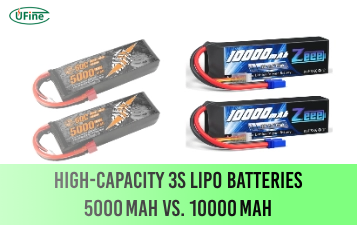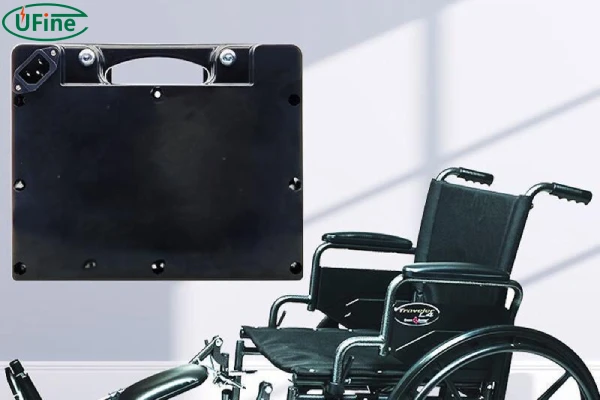Selecting the right wheelchair battery is crucial for maintaining your mobility and independence. With a plethora of options out there, it’s easy to feel overwhelmed. This guide is designed to help you navigate through the different types of wheelchair batteries, understand how to assess their quality, get a handle on the associated costs, and provide practical tips for making an informed purchase.
Part 1. What is the wheelchair battery?
A wheelchair battery is a powerhouse that drives electric wheelchairs, providing the energy needed for movement and functionality. These batteries are rechargeable and engineered to deliver consistent, long-lasting power. They come in various types and sizes, each tailored to different wheelchair models and user needs. Understanding the basics of wheelchair batteries will help you make a more informed choice.
Part 2. Types of wheelchair batteries
1. Sealed Lead Acid (SLA) Batteries
SLA batteries are among the most commonly used in wheelchairs. They are sealed, meaning they don’t require maintenance in terms of topping up fluids.
Pros:
- Affordability: Generally cheaper than other types.
- Reliability: Offer consistent performance.
- Availability: Widely available in the market.
Cons:
- Weight: Heavier than other battery types.
- Lifespan: Tend to have a shorter lifespan compared to more modern alternatives.
2. Gel Cell Batteries
Gel cell batteries use a gelified electrolyte, making them more stable and less prone to leaking.
Pros:
- Durability: More resistant to vibrations and shocks.
- Safety: Spill-proof, reducing the risk of acid leaks.
- Lifespan: Typically last longer than SLA batteries.
Cons:
- Cost: More expensive than SLA batteries.
- Charge Time: May take longer to charge fully.
3. Absorbent Glass Mat (AGM) Batteries
AGM batteries incorporate a fiberglass mat to absorb the electrolyte, making them highly efficient.
Pros:
- Performance: Excellent performance in various conditions.
- Weight: Lighter than SLA batteries.
- Safety: Spill-proof design.
Cons:
- Price: Generally more expensive than SLA batteries.
- Availability: Slightly less common than SLA batteries.
4. Lithium-Ion Batteries
Lithium-ion batteries represent the latest in battery technology, offering superior performance and efficiency.
Pros:
- Weight: Significantly lighter than other types.
- Lifespan: Longer lifespan, often lasting several years.
- Fast Charging: Can be charged faster than other types.
Cons:
- Cost: The most expensive option.
- Availability: Not as widely available as SLA or gel cell batteries.
Part 3. How to judge the quality of wheelchair batteries?
Factors to Consider
- Battery Life: One of the most critical aspects. High-quality batteries will offer a longer lifespan, reducing the need for frequent replacements.
- Capacity: Measured in ampere-hours (Ah). A higher Ah rating means the battery can power the wheelchair for longer periods between charges.
- Brand Reputation: Opt for batteries from well-known brands with a track record of reliability and quality.
- Warranty: A robust warranty is a good indicator of the manufacturer’s confidence in their product. Look for batteries with at least a one-year warranty.
- Customer Reviews: Reading reviews from other users can provide valuable insights into the battery’s performance, reliability, and overall satisfaction.
Part 4. Price and cost of wheelchair batteries
Main Costs
- Initial Purchase Price: The upfront cost of buying the battery.
- Maintenance Costs: While most modern wheelchair batteries are maintenance-free, some may require occasional checks or replacements.
- Replacement Costs: Over time, batteries will need to be replaced. Understanding the lifespan of your battery can help you anticipate these costs.
Factors Affecting Price
- Type of Battery: SLA batteries are generally the least expensive, while lithium-ion batteries are the most costly.
- Capacity: Higher capacity (Ah) batteries usually come at a higher price.
- Brand: Premium brands often charge more due to their reputation for quality and reliability.
Price Range
</pa
- SLA Batteries: Typically range from $50 to $200.
- Gel Cell Batteries: Usually cost between $100 and $300.
- AGM Batteries: Generally priced from $150 to $350.
- Lithium-Ion Batteries: Can range from $300 to $800, though prices can vary based on specific models and capacities.
Part 5. Tips on buying wheelchair batteries
1. Assess Your Needs
First and foremost, determine your specific requirements. Consider how often you use your wheelchair, the typical distances you travel, and the terrain you navigate. If you use your wheelchair frequently or for long distances, you might benefit from a battery with a higher capacity.
2. Consider Weight
Weight is an important factor, especially if you need to regularly transport your wheelchair. Lighter batteries, such as lithium-ion, can make handling and transporting your wheelchair much easier. However, balance this against cost and capacity to find the best fit.
3. Check Compatibility
Ensure the battery you choose is compatible with your wheelchair model. Consult your wheelchair’s manual or manufacturer for recommended battery types and specifications. Using an incompatible battery can lead to performance issues and may even void your warranty.
4. Look for Deals
Prices can vary significantly between different retailers and brands. Shop around and compare prices to find the best deal. Online retailers often have competitive prices and offer customer reviews that can provide additional insights.
5. Read Reviews
Customer reviews are a valuable resource when selecting a battery. Look for feedback on battery life, reliability, and performance. Reviews can also highlight any common issues or drawbacks, helping you make a more informed decision.
6. Prioritize Quality
While it might be tempting to choose the cheapest option, investing in a high-quality battery can save you money in the long run. High-quality batteries tend to last longer and perform better, reducing the frequency and cost of replacements.
7. Consider Warranty
A good warranty can provide peace of mind and protect your investment. Look for batteries that come with at least a one-year warranty. Some manufacturers offer extended warranties, which can be beneficial if you rely heavily on your wheelchair.
8. Consult Professionals
If you’re unsure about which battery to choose, don’t hesitate to seek advice from professionals. Mobility equipment suppliers, healthcare providers, and even online forums can provide valuable insights and recommendations based on your specific needs.
By understanding the different types of wheelchair batteries, knowing how to evaluate their quality, and being aware of the costs involved, you can make a well-informed decision. Follow these tips to choose the best battery for your wheelchair, ensuring you stay mobile, independent, and empowered.
Related Tags:
More Articles

High‑Capacity 3S LiPo Batteries: 5000 mAh vs. 10000 mAh
Compare 3S LiPo 5000mAh vs 10000mAh batteries by weight, power, and use. Find the best fit for your drone, RC car, or boat setup.
Top 5 Applications for Small 3S LiPo Batteries
Small 3S LiPo batteries power drones, RC gear, wearables, and robotics with high energy and low weight. Making them ideal for compact electronics projects.
Building and Charging Your Own 3S LiPo Pack: A Step‑by‑Step Guide
Learn how to build, balance, and charge a 3S LiPo battery pack safely at home with this complete DIY guide for hobbyists and beginners.
How to Choose the Right LiPo Battery Plug Type?
Discover the best LiPo battery plug types, how to choose them, and expert tips for safe usage, soldering, and maintenance.
Choosing the Right Connector for Your 3S LiPo Battery
Choosing the right 3S LiPo connector depends on current, space, and use. Learn the pros and cons of XT60, JST, EC3, and more.




